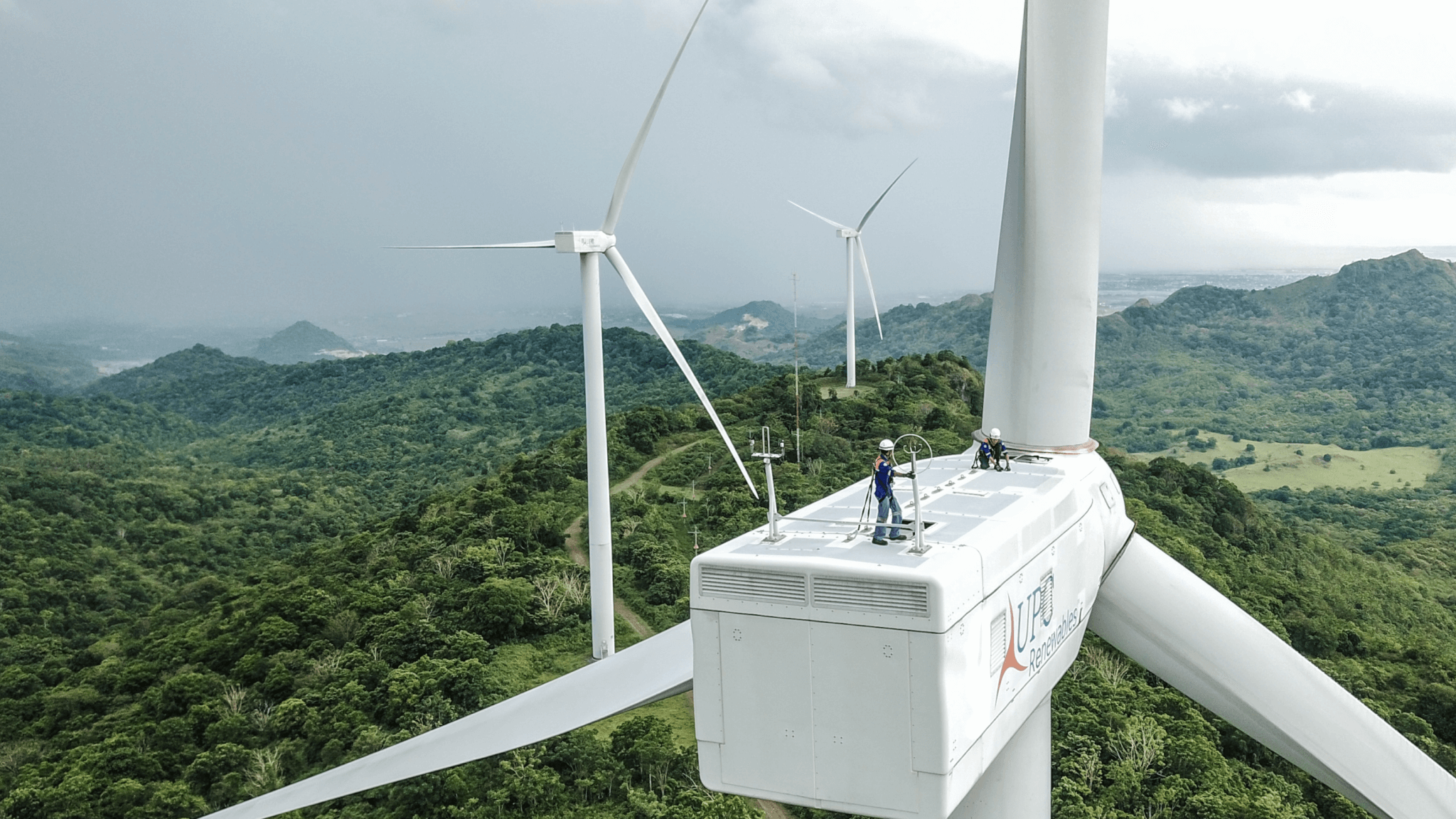Since I joined ClimateWorks in late January, I have dedicated my time to understanding the broader philanthropic landscape and how ClimateWorks can best support and amplify efforts by philanthropy to take bold action to end the climate crisis.
I’ve met with our staff, Board, funders, and a number of grantees and other partners who’ve generously shared their insights and ideas with me. I’ve also shared in the conversation about the urgency of the climate challenge within today’s broader geopolitical context and how philanthropy can catalyze action. Recent events I’ve participated in include the ISPI-OECD High Level Forum on Climate Change, the Financial Times Climate Capital Live, discussions on the sidelines of the World Bank-IMF Spring Meetings, and Aspen Ideas: Climate.
I’m energized by the breadth and quality of climate action that ClimateWorks is driving in collaboration with our global grantees and partners. We’ve had many notable accomplishments over the past few months that exemplify how we’re working collectively to build momentum, including:
- Supported the launch by Bloomberg Philanthropies of a major new $242 million fund to help deliver clean, accessible energy in 10 developing countries.
- Launched The Carbon Call, an initiative to accelerate the development of reliable and interoperable carbon emissions accounting to help the world reach net zero by midcentury.
- Advanced research in a diverse portfolio of carbon removal options, which the science community says will now be essential to limit warming to 1.5C.
- Capped a global competition that installed over 1.1 million square meters of solar-reflective “cool” roofs in developing countries suffering from heat stress.
- Aligned philanthropic support to advance battery sustainability and safeguard the rights of mining-affected and Indigenous communities.
- Activated members of the independent community to submit input to the first Global Stocktake, the key measure for assessing and strengthening progress in meeting the Paris Agreement goals.
- Drove engagement for zero-carbon shipping, including this landmark announcement to create a “green” shipping corridor from Los Angeles to Shanghai, one of the busiest maritime trade routes in the world.
It is clear that philanthropy has already played a critical role in advancing climate progress and is well-positioned to do even more as funders bring critical new investments to the fight. I believe the efforts of ClimateWorks to help this ever larger and more complex climate philanthropy community act with urgency is needed now more than ever – together we need to get more money out the door more rapidly, and focus on the biggest opportunities for impact. There is no time to lose, with the recent IPCC reports showing why every fraction of a degree of warming matters. We must peak emissions urgently and reach net zero by 2050 by utilizing all the tools in our toolkit.
The latest heatwaves wreaking havoc in India and Pakistan, and now the Middle East, are yet another stark reminder of what is at risk for each year we delay. While the people of Ukraine continue to bravely fight back against the brutal invasion by Russia, this war has sparked major energy and food crises, as well as shifted geopolitical alliances, with reverberations that are likely to affect all countries. At the same time, the world continues to adjust to a new normal of disruptions brought on by the Covid pandemic, supply chain chaos, and a global cost of living crisis. In this context, philanthropy’s role in accelerating funding to catalytic climate solutions that benefit both people and the planet is all the more essential.
It is clear that philanthropy has already played a critical role in advancing climate progress and is well-positioned to do even more as funders bring critical new investments to the fight.
I’m proud of the efforts by all ClimateWorks teams to rapidly help the field assess and adjust our collective strategies in light of these various crises and invest in efforts to fight back against the narratives of powerful industries and lobbyists who benefit from the continuation of the status quo. Our road transportation, industry, and food and agriculture programs, for example, are rapidly adapting their strategies to accelerate efforts to reduce demand for fossil fuels, and to help strengthen food and energy security. We will need to keep assessing and adjusting our strategies in the coming months to continue to have the greatest impact in the face of these fast-evolving and inter-connected crises.
As I look to the months ahead, ClimateWorks is focused on three key ways we can help scale climate action:
Helping philanthropy get more money to climate solutions, reaching grantees on the ground more rapidly, and taking a more radically collaborative approach. This includes working closely with key partners – from all the regional climate foundations to the Climate and Land Use Alliance (CLUA), the Methane Hub, the Climate Leadership Initiative (CLI), and others – to ensure that collectively we are helping funders quickly identify, invest in, and scale high-impact solutions. For ClimateWorks, this also means continuing to realize efficiencies in our systems and processes, even as we staff up to meet the growing scale of our operations. We can achieve this by focusing and strengthening many of our programs, building on the experience of the most successful initiatives, and increasing our international reach. I am particularly excited for ClimateWorks to partner with other funders and grantees to co-create broad, bold strategies for philanthropy on climate finance and on food and agriculture – two areas greatly needing attention – and working together to deliver these strategies.
Deeply embedding a people-centered approach to climate action that reflects our commitments to justice and equity. This includes building a more equitable, inclusive, and diverse culture, increasing our funding for climate and justice through our programmatic work, and advancing a focus on people, jobs, health, justice, and equity across our ecosystem. We will continue to accelerate these efforts through engagement with our JEDI advisors, our search for a Chief of Equity, Justice, and Culture to lead this emerging unit at ClimateWorks, and our pilot fund providing additional resources to BIPOC-led and grassroots organizations. As we near the second anniversary of the major reckoning with structural racism sparked by George Floyd’s murder, I want to encourage us to keep challenging ourselves and our thinking for how we can do more to help redress historic injustices and foster an equitable, vibrant future through climate action.
Leaning in to explore innovative approaches and solutions to interconnected issues. As the climate crisis intensifies, so too do the links between a destabilizing environment and broader societal issues. At ClimateWorks, through our Global Intelligence and Global Collaborations services, as well as our sectoral and country programs, we are well placed to help the broader philanthropic community explore solutions to interconnected issues in a way that attracts and leverages public and private investment. We will strengthen our efforts to support the community by scanning the horizon for looming challenges and new opportunities, and testing approaches that help us act with the urgency required to tackle the climate crisis.
Delivering on these priorities will pave the way for critical moments later this year, including COP27, the G7 and G20, and other moments where the world must move beyond promising commitments to implementation, measurable and accountable progress, and increased ambition. I am honored that ClimateWorks can work closely with our partners in helping philanthropy to rise to this moment with unprecedented, collaborative climate action. Together, we can help put the world on a better trajectory for people and the planet for generations to come.
In solidarity,
Helen


